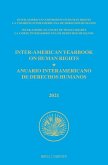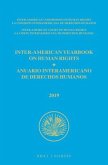This book considers the issues involved in international commercial disputes where set-off has been used. Most such disputes are conducted through arbitration so the focus of this book is on the effect of arbitration proceedings on set-off claims.
The book considers the important institutional rules of arbitration procedure such as the Swiss Rules, the CNUDCI, the ICC rules and others. It covers in some detail the various possible solutions to the issue of applicable law under national and supra-national law. Included in this discussion is an analysis of the Rome I Regulation, the CISG, and the UNIDROIT Principles contained in the PICC and PECL.
There is full consideration of the other relevant matters including enforceability, currency issues, and burden of proof. The last section of the book analyses the position of set off in insolvency, including a general comparative look at the situation in common and civil law, and concluding with an explanation of the effect of the European Regulation on Insolvency Proceedings.
Set-off is a commonly used but complex device used to avoid the cumbersome transfer of money in international commercial transactions. The situation is made even more complex when disputes arise bringing issues of applicable law and jurisdiction. This book raises the potential issues and analyses the probable solutions with reference to national and international laws and arbitral rules. It will assist common law practitioners with practical solutions under major civil law jurisdictions and
vice versa.
Hinweis: Dieser Artikel kann nur an eine deutsche Lieferadresse ausgeliefert werden.
The book considers the important institutional rules of arbitration procedure such as the Swiss Rules, the CNUDCI, the ICC rules and others. It covers in some detail the various possible solutions to the issue of applicable law under national and supra-national law. Included in this discussion is an analysis of the Rome I Regulation, the CISG, and the UNIDROIT Principles contained in the PICC and PECL.
There is full consideration of the other relevant matters including enforceability, currency issues, and burden of proof. The last section of the book analyses the position of set off in insolvency, including a general comparative look at the situation in common and civil law, and concluding with an explanation of the effect of the European Regulation on Insolvency Proceedings.
Set-off is a commonly used but complex device used to avoid the cumbersome transfer of money in international commercial transactions. The situation is made even more complex when disputes arise bringing issues of applicable law and jurisdiction. This book raises the potential issues and analyses the probable solutions with reference to national and international laws and arbitral rules. It will assist common law practitioners with practical solutions under major civil law jurisdictions and
vice versa.
Hinweis: Dieser Artikel kann nur an eine deutsche Lieferadresse ausgeliefert werden.








